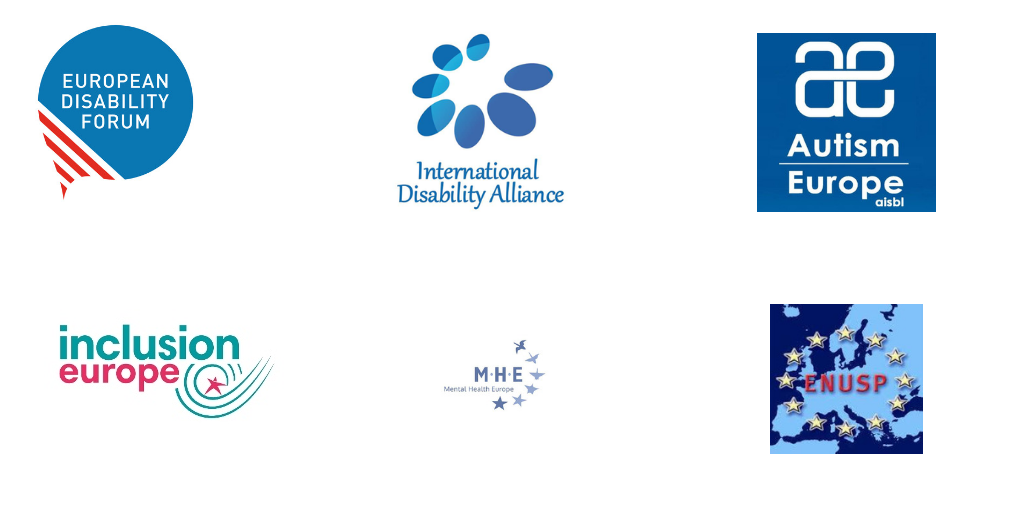Click here for the easy-to-read version
Inclusion Europe, alongside five other disability organisations, has welcomed Bulgaria’s leadership in objecting against the draft additional protocol to the Oviedo Convention, which, if adopted, would authorise forced treatment and forced placement, notably in institutions of persons with disabilities, in particular persons with psychosocial disabilities. These practices are unacceptable under the United Nations Convention on the Rights of Persons with Disabilities.
While the opposition of Portugal to the draft was reported, Bulgaria is the first country to publicly object against the Council of Europe’s draft Additional Protocol “concerning the protection of human rights and dignity of persons with mental disorder with regard to involuntary placement and involuntary treatment”.
It makes it the first European state to officially declare that the Council of Europe move away from institutionalisation and involuntary treatment of persons with psychosocial, intellectual and other disabilities.
The objection against this addition to Council of Europe’s Oviedo Convention on biomedicine was announced during the 20th session of the UN Committee on the Rights of Persons with Disabilities.
Bulgaria’s position against the draft illustrates the world’s current developments in the field of human rights, shifting away from exclusion and towards supporting each person to exercise their rights and will.
We strongly welcome this statement and encourage other Member States of the Council of Europe to join Portugal and Bulgaria in this effort to withdraw the draft additional protocol. If adopted, the protocol will allow serious human rights breaches, solidify institutionalisation of persons with disabilities and runs counter the rights established by the UN Convention on the Rights of Persons with Disabilities.
This statement is endorsed by:
Inclusion Europe
International Disability Alliance
ENUSP – European Network of (ex)users and survivors of psychiatry
The Oviedo Convention
The Council of Europe’s Convention on Human Rights and Biomedicine, better known as the Oviedo Convention, is a European, legally binding instrument on the protection of human rights in the biomedical field. It establishes that human rights must come before other considerations in the field of biomedicine. It lays down a series of principles and prohibitions concerning bioethics, medical research, consent, rights to private life and information, organ transplantation, public debate etc. Despite its name, the “Draft Additional Protocol concerning the protection of human rights and dignity of persons with mental disorder with regard to involuntary placement and involuntary treatment”, would not protect such persons and would authorize some forms of involuntary placement and treatment of persons with disabilities.
Related information
Press Release in PDF | Word
Letter to the Council of Europe
About EDF’s campaign
Mental Health Europe statement
ENUSP’s page on the Draft Additional Protocol
#WithdrawOviedo campaign

Easy-to-read version
Click on a word which is in bold to read what it means.
“Bulgaria speaks out against institutions in Europe”
The Oviedo Convention is an important document
made by the Council of Europe.
It says that doctors must respect human rights when working.
The Council of Europe wants to add a new part
to the Oviedo Convention.
This new part makes it possible
to put people with disabilities in institutions and
give them drugs against their will.
Bulgaria said it does not want this new part
in the Oviedo Convention.
We are happy about that!
The new part goes against the UN CRPD.
Inclusion Europe together with 5 organisations
want to thank Bulgaria.
The other organisations are:
- European Disability Forum,
- International Disability Alliance,
- Autism Europe,
- Mental Health Europe,
- European Network of (ex)users and survivors of psychiatry.
Together with Portugal,
Bulgaria is the first country officially saying
that this new part of the Oviedo Convention is against human rights.
Lots of countries in the world change
how they deal with people with disabilities.
They do not want to put people with disabilities
in institutions anymore.
We think that other countries should do the same as Bulgaria.
Other countries should also say
that they do not agree with this new law.






